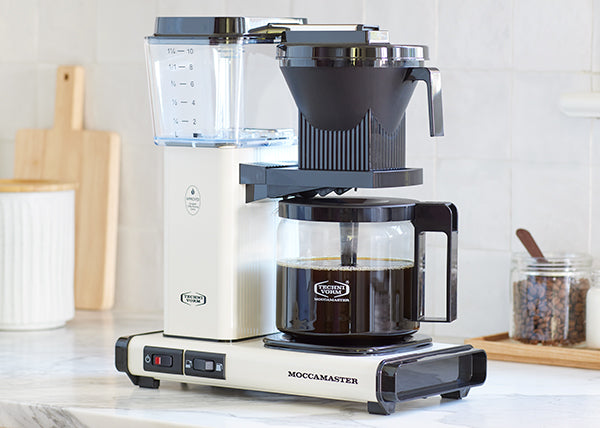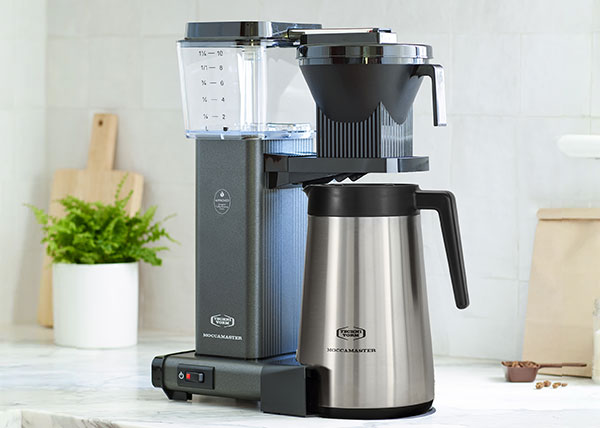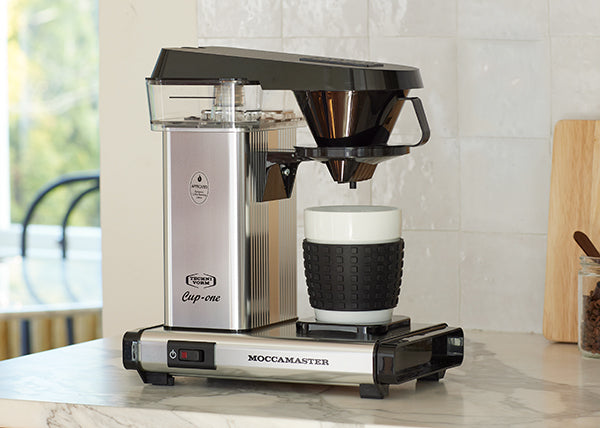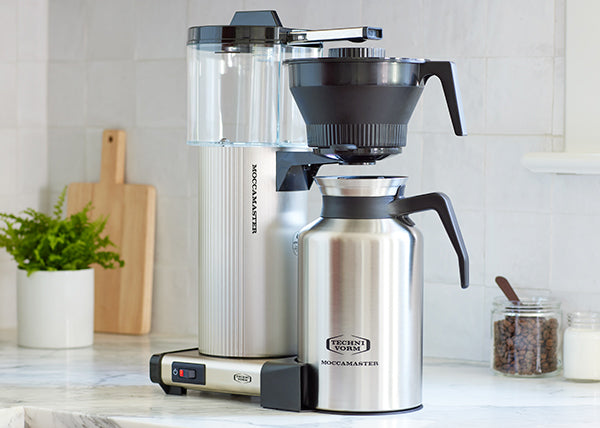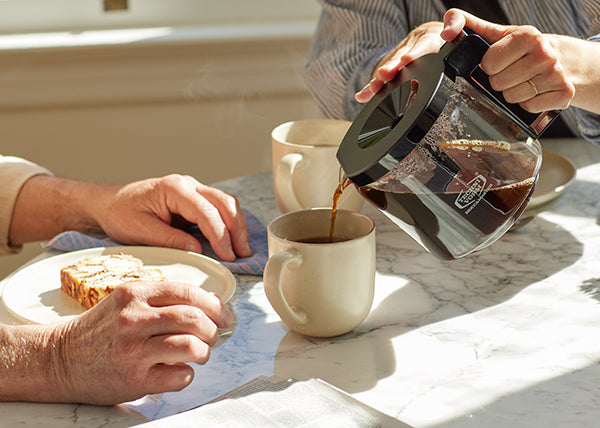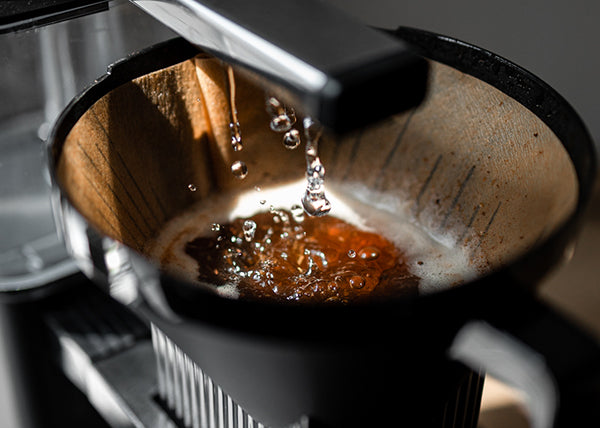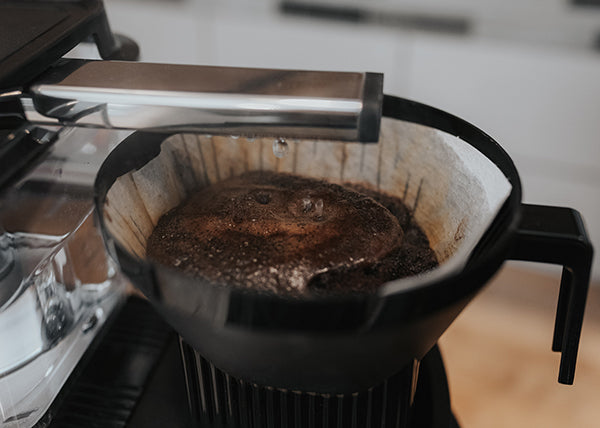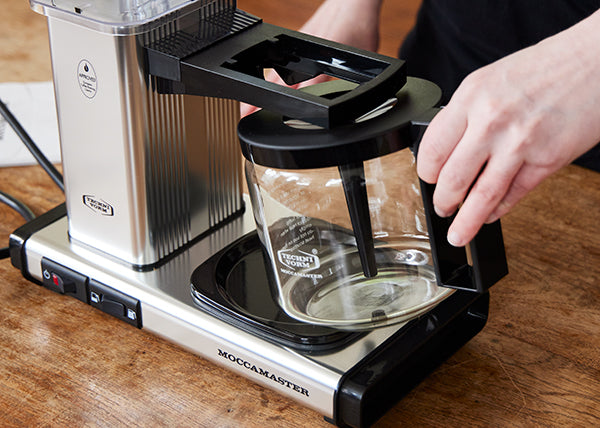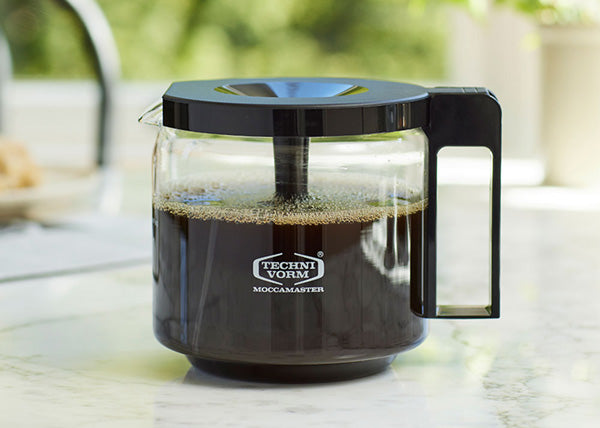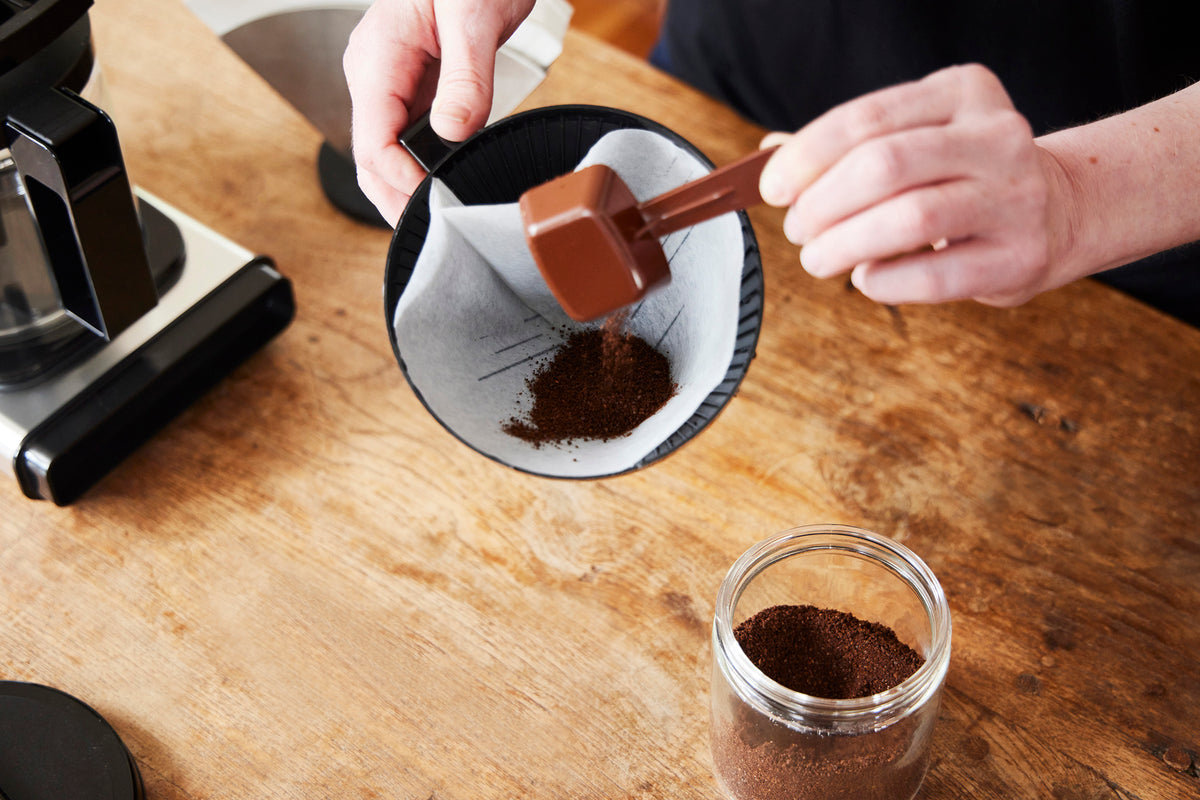There is nothing quite like that first sip of a freshly brewed cup of your favorite coffee: the aroma, the burst of flavor, the radiating warmth. If you’ve decided to brew your coffee on a Moccamaster, chances are you’re looking to get the best experience possible in every cup. And while the Moccamaster makes perfect, SCA and ECBC-certified coffee easy, one of the most overlooked aspects of achieving that perfection is the timing of when the coffee beans are ground.
Should you buy pre-ground coffee? Should you grind your own beans? If so, when should you grind them? The short answer to all these questions is this: the fresher the coffee grounds, the better.
The best approach is to grind your beans yourself with a quality grinder such as our KM5 Burr Grinder just before brewing your coffee. How coarse you’ll need to grind your beans depends on the method; when brewing on a Moccamaster, you’ll want your beans ground to medium-coarse. (Read more on the importance of coffee grind size, and choosing a burr grinder vs. blade grinder.)
Scientifically speaking, four significant elements impact the freshness of your coffee grounds: oxidation, carbon dioxide (CO2), moisture, and contamination.
Oxidation
When you grind your coffee beans the grounds are exposed to air molecules and oxidation begins. It’s the reason your freshly ground coffee smells so good – upon grinding your beans, the initial oxidation releases oils and aromatics into the air. However, like fresh fruit, the longer coffee sits out, the more it oxidizes, and the more it degrades and loses those oils and aromas.
Carbon Dioxide
Carbon Dioxide (CO2) depletion also degrades the quality of your coffee and begins when coffee beans are ground. Coffee beans are highly porous; grinding them makes beans even more so. If you brew your coffee immediately after grinding, the beans will still have enough CO2 to transfer oils into the coffee. This leads to better flavor and aroma.
The longer coffee grounds sit, the more CO2 is depleted. Grinding them the night before will extend the CO2 depletion process. Even vacuum-sealed pre-ground coffee will suffer from significant CO2 depletion, resulting in degraded coffee flavor and aroma.
Moisture
Similar to CO2 depletion, moisture in the air plays a significant role in the quality of your ground coffee. Coffee beans contain oils, which are soluble in water, making them subject to absorbing moisture. Even in the driest of environments, moisture in the air can degrade your beans. It is ideal to keep them whole in an airtight container like our stainless-steel coffee canister until you are ready to use them.
Contamination
The last aspect that can impact the flavor of your beans is contamination. The odors from cooked onions, garlic, or any powerfully aromatic food near your coffee can seep in and contaminate the flavor and aroma of your beans, especially when they are ground.
Avoid storing your coffee in the freezer, as that increases both moisture and contamination. A dark, sealed, room temperature space where there are no other competing aromas is best.
Conclusion
With all this in mind, it’s worth exploring to see if you notice a difference between freshly-ground and pre-ground coffee. As coffee lovers, we all have different tastes, sensitivities, and preferences. Perhaps the convenience of pre-ground coffee makes more sense for you. Or maybe you won’t even taste much difference. But chances are, you will notice a difference, and it will be worth it to grind your coffee beans right before you brew. From our experience, the fresher the grind, the better the coffee.


